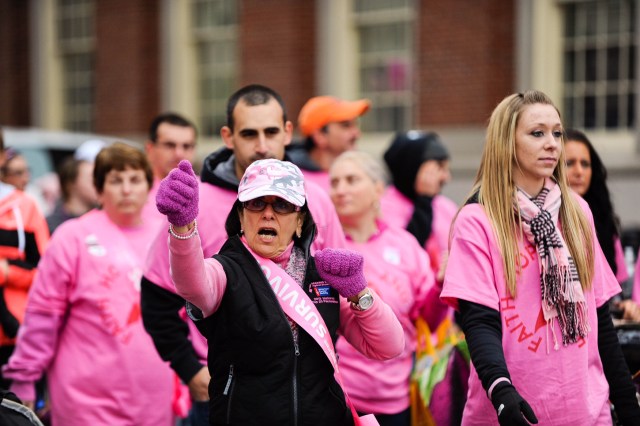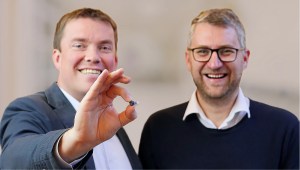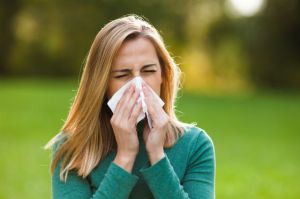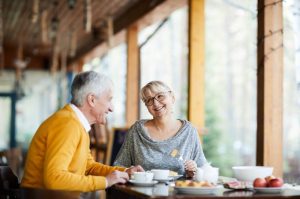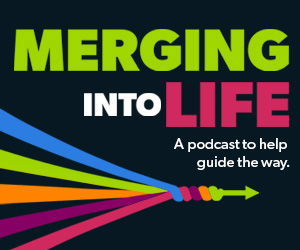While battling a life-changing disease like breast cancer, it helps to have a support system in place.
It’s especially helpful when someone who has survived breast cancer is in your corner, helping you navigate through the journey, from the initial diagnosis to undergoing treatment and beyond.
Someone like Dianne Fonseca, a AAA member and Greenville, R.I., resident who volunteers for the American Cancer Society’s Reach to Recovery program.
The program pairs volunteers who are breast cancer survivors with people currently living with breast cancer. Through in-person visits or by phone, the volunteers provide understanding, comfort and hope by answering questions and addressing concerns that may come up during the experience.
Though they don’t give medical advice, the volunteers offer guidance that only someone who has been through the same experience can.
While dealing with her own diagnosis, Fonseca was introduced to a Reach to Recovery volunteer by a friend. Her experience spurred her to help others.
“I knew that as soon as I was able, I would volunteer for the program myself,” Fonseca said.
Fonseca was diagnosed with breast cancer 19 years ago. After finding a lump herself, she scheduled an appointment with her doctor, who immediately sent her for a sonogram.
“The hardest part at that time was waiting an entire week for the results,” she said. “I will never forget coming home from teaching that day and finding my husband and older son waiting for me. My husband informed me that my doctor had called him to tell him I had breast cancer.”
Fonseca is a fighter and was not going to let her diagnosis get in the way. She and her husband were determined to keep living their lives as they did before.
But the road ahead wasn’t easy. One of her greatest challenges was losing her hair, which had begun to fall out a week after her first chemotherapy treatment. Fonseca quickly recognized that her diagnosis was strongly affecting her loved ones.
“I was somewhat taken aback at first by the reaction of my husband, our sons and my mom at the news of my breast cancer,” she said. “Our oldest son didn’t want to finish his senior year at Notre Dame, and our youngest didn’t want to go to Loyola for his freshman year. I realized that I needed to be strong, not only for myself, but also for my family.”
Fonseca found that some of the best medicine was continuing living her life as she did before her diagnosis. It gave her a purpose and took her mind off her disease.
“It was also better for my family,” she said. “My mom insisted on coming to stay with us when I first came home, but within a couple of days I was up and about, hanging clothes on the line! Always look ahead, and never look back!”
Now 19 years cancer-free, Fonseca provides support to women in southern New England who are facing issues much like she did during her cancer journey. Many are Spanish-speaking women who don’t have a firm grasp of English. Fonseca – a former language teacher – can speak proficient Spanish (and Italian, too!). She’s been volunteering since 2005 and has no plans of stopping.
She has raised nearly $400,000 for the American Cancer Society’s Making Strides Against Breast Cancer program. Every year, she continues to push herself and works to raise more money than the year before. She’s motivated by the fact that she is extremely grateful for her life.
“In raising these funds, I feel that I am helping the American Cancer Society to continue with their research and programs to help others,” she said. “Volunteering has been the most rewarding for me, helping others who are going through what I went through.”
Here are a few of Fonseca’s key pieces of advice for people living with cancer.
Rest Often
“You’re going to be tired. It’s normal,” she said. “Don’t fight it.”
People living with cancer feel tired and fatigued more often than people who don’t, Fonseca said. Your loved ones will understand if you need to let your body rest. When the opportunity presents itself, take it.
Look Ahead
“Having a positive outlook changes everything,” she said. “Look ahead instead of behind.”
Looking behind and focusing on the past might dredge up negative emotions. Focus on the future – recovery – and try your best to remain positive. Fonseca said a positive attitude made all the difference during her own experience with cancer.
Take Advantage
Fonseca encourages people with breast cancer to take advantage of all the resources the American Cancer Society offers. In addition to the Reach for Recovery program, the Road to Recovery program provides transportation to cancer-related medical appointments to those who can’t drive. The Look Good, Feel Better program provides group workshops and one-on-one consultations based on skin care, makeup application, hair-loss products and more.
Visit www.cancer.org to learn more.
– Cassandra Raposo and Rebecca Galib contributed to this story.
Do you have any experience volunteering? Share your story in the comments below.
Want to volunteer in your retirement? Read about volunteer opportunities here.



